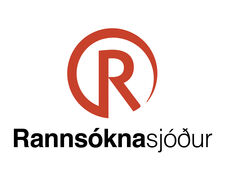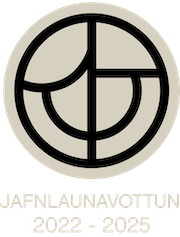Kynjajafnrétti við stjórn atvinnulífsins: stefna, þróun og áhrif - verkefni lokið
Fréttatilkynning verkefnisstjóra
The main aim of the project was to analyse gender equality in top leadership in the 250 largest companies in Iceland, and the impact of the gender quota law, which was implemented in September 2013. The project employed interdisciplinary and mixed method approaches.
The findings show that the number of women has increased on the corporate boards that are affected by the laws. However, a spread effect has not occurred accordingly, either on boards that are not affected by the quota laws, or in the executive management. The percentage of women serving as committee chairs has not increased either. The work life of female and male senior managers intrudes into the domestic sphere in distinct ways and women are left with fewer options than men about where and when to work. Also, male managers get more support from home, pointing to a gender disparity within families.
In general, the managers do not understand the underrepresentation of women in top leadership according to clear-cut demand vs. supply arguments, and they favor a combination of the two perspectives. However, there are some tensions in how women and men explain this situation. Female managers argue that “old men's network” still exists, that the working culture is still male oriented and that men do not trust women for to be top managers. Male managers, on the other hand, argue that times are changing and that women's time will come “by itself”. They also point out different deficiencies among women such as little commitment and that women are too tied to the family due to childbirth etc. to be able to have this kind of work. The results show that tension also exists between gender-neutral arguments and arguments about women's alleged special traits and qualifications. Arguments emphasizing the importance of women's special capabilities for the well-being of society and companies' profitability were at the heart of the quota legislation, and as such, proved successful. However, the findings also demonstrate the risk that female candidates are viewed as a signal of change in times of crisis. As such turbulent times are often difficult for the business, it may become a double-edged sword for women to be step forward in such times.
These results have both theoretical impact (by publishing reviewed papers) as well as practical impact (through discussion with stakeholders and policy makers). The debate about the pros and cons of the gender quota laws is prominent in Europe, and the results are an important contribution to the ongoing debate.
Publications
Articles in PhD dissertations and articles based on MA thesises
-Axelsdóttir, L. & Einarsdóttir, Þ. (2017) “The Realization of Gender Quotas in Post-collapse Iceland” in NORA, Nordic Journal of Feminist and Gender Research, 25:1, 48-61.
-Rafnsdóttir, GL & Júlíusdóttir, Ó. (2018). “Reproducing gender roles through virtual work: The case of senior management” in International Journal of Media and Cultural Politics. 14(1).
-Axelsdóttir, L. & Halrynjo, S. (forthcoming) „Gender Balance in Executive Management: Top-Managers Understanding of Barriers and Solutions from the Demand-Supply Perspective” in Social Politics: International Studies in Gender, State & Society.
- Júlíusdóttir, Ó. Rafnsdóttir, GL and Einarsdóttir, Þ. "Gender disparity in business leadership: A case study from Iceland a country in the gender equality forefront". In 2nd review for the journal Gender and Management.
- Júlíusdóttir Ó. and Rafnsdóttir GL. Public policies aiming for gender
equality in relation to leadership positions in Iceland. In progress for the
journal Social Politics. Will be
submitted soon
- Júlíusdóttir Ó, Axelsdóttir L and Einarsdóttir Þ (in progress) Networking and
Recruitment in Senior Management in Iceland: A Homosocial (re)production
–Einarsdóttir, Þ., Rafnsdóttir, GL.,
Axelsdóttir, L., and Teigen, M: “The Corporate Quota Turn and Gender
Differences Among Nordic Board Member” (in preparation)
- Rafnsdóttir GL. Einarsdóttir Þ., Valdimarsdóttir M. Structural
disadvantage or Less Driven Women? Manager's Views on Gender Disparities and
Gender Quotas in Leadership Positions. In progress for the journal
Gender and Politics
-Rafnsdóttir
G.L., Axelsdóttir L., Diðriksdóttir S. and Einarsdóttir Th. (2015). Women and
men as business leaders in Iceland. Akureyri, Jafnréttisstofa. DOI: 10.13140/RG.2.1.2829.9368
-Diðriksdóttir, S., Einarsdóttir Þ. & Rafnsdóttir,
GL: “Lýðræðisrök og arðsemisrök til kynjakvóta í stjórnum fyrirtækja á Íslandi”.
In progress and will be submittet to Tímarit
um viðskipti og efnahagsmál in April 2018.
-Sigurvinsdóttir, LR., Rafnsdóttir GL og Einarsdóttir Þ: Viðhorf til kynjakvóta.
Eigindleg og megindleg rannsókn. To be sumbittet to Íslenska þjóðfélagið. In progress.
Other publications; spin-off project.
-
Magnús Þór Torfason, Þorgerður Einarsdóttir, Guðbjörg Linda Rafnsdóttir og
Margrét Sigrún Sigurðardóttir (2017) „Elítur á Íslandi –
einsleitni og innbyrðis tengsl” í Stjórnmál
og stjórnsýsla,
árg. 13, nr. 1.
-Einarsdóttir, M. and Rafnsdóttir, GL (2016) ¡Es tan persistente!: evolución de
la brecha salarial de género y la brecha de cuidados en Islandia, in Díaz,
Capitolina and Simó-Noguera, Carles X. (coords.) Brecha salarial y brecha de
cuidados. Valencia: Tirant lo Blanch, p. 229-250.
Reports
-Guðbjörg
Linda Rafnsdóttir, Þorgerður Einarsdóttir, Laufey Axelsdóttir & Sunna
Diðriksdóttir: „Women and Men as Business Leaders in Iceland“. In cooperation
with the Center for Gender Equality, funded by the EU: PROGRESS programme
2007-2013. Also in Icelandic: „Konur og karlar í forystu atvinnulífsins.
Open access: All the articles are sent to journals with open access, the MA and BA thesises are open in Skemma.is and the reports (both in English and Icelandic) are at UoI webpage http://www.mark.hi.is/skyrslur and also at the Center for Gender Equality homepage http://www.jafnretti.is/D10/_Files/HI-LOKASKYRSLA.pdf
2014
Guðbjörg Linda Rafnsdóttir: “Gender quotas on boards
of corporations – causes and consequences”. Gender,
Work and Organisations. Keele University UK. 24-26 June. 2014
Guðbjörg Linda Rafnsdóttir „Kynjakvótar í stjórnum fyrirtækja. Auka þeir fjölbreytni og faglegheit?“. Málþingið: Fjölbreytt og fagleg forysta Tækifæri og áskoranir. Hótel KEA Akureyri 11. apríl 2014
2015
-Guðbjörg Linda Rafnsdóttir: “Kynjakvótar í stjórnum
fyrirtækja. Samstarfsverkefni KPMG og Háskóla Íslands”. Soroptimistaklúbbur
Reykjavíkur og Seltjarnarness, held at KPMG Iceland.
-Guðbjörg Linda Rafnsdóttir: “Kynjakvótar í stjórnum fyrirtækja” lecture at an
education meeting at Félag verkfræðinga, April 14 2015.
Ráðstefna um íslenska þjóðfélagið. Ísafjörður, April 18 – 19, 2015
-Þorgerður Einarsdóttir og Guðbjörg Linda
Rafnsdóttir: “Hver eru þau – hvert ætla þau? Um völd og lýðræði í 250 stærstu
fyrirtækjunum á Íslandi.”
-Sunna
Diðriksdóttir: „„Ef það er ekki business þá vil ég ekki heyra það“ Viðhorf
æðstu stjórnenda og stjórnarmanna til laga um kynjakvóta í stjórnum
fyrirtækja“.-Laufey Axelsdóttir:
“Kvenleg gildi og arðsemi fyrirtækja”
-Ólöf Júlíusdóttir: “Stjórnendur alltaf á vaktinni – tækni, tími og rými”
-Laufey Axelsdóttir “Kvenleg gildi og arðsemi fyrirtækja”.
-Þorgerður Einarsdóttir: „Leading men and women in
economic life in Iceland.“ The international conference „Gender Diversity on
company boards and in leadership positions“ held by Center of Gender Equality
in cooperation with the Ministry of Industries and Innovation, Nasdaq Iceland
(Kauphöllin), University of Iceland and Reykjavík University, Reykjavík, May
29, 2015. http://www.fjolbreyttforysta.is/?p=407.
-Guðbjörg Linda Rafnsdóttir:
“Gender quotas and the glass ceiling. A case study among the business
executives in Iceland. Glasstaket: Metaforen og mekanismene.” Trondheim 15-16
June 2015.
Workshop in the project Power and democracy, June
18, 2016 (vol.hi.is)
-Laufey Axelsdóttir and Þorgerður Einarsdóttir: „The Glass Cliff: Gender
Quotas in Times of Crisis”
-Sunna Diðriksdóttir: „Ef það er ekki business þá vil ég ekki heyra það“
-Ólöf Júlíusdóttir and Guðbjörg Linda Rafnsdóttir:”Exaggerating gender roles through
virtual work”
-Þorgerður Einarsdóttir
“Gender relations in post-crisis Iceland”, the conference on “100 ára
kosningaréttur kvenna á Íslandi. Alþjóðleg ráðstefna“, October 22-23, 2015.
-Þorgerður
Einarsdóttir og Guðbjörg Linda Rafnsdóttir Hvers kyns elíta? Hvað einkennir
forystufólk í íslensku atvinnulífi? Þjóðarspegill,
ráðstefna í félagsvísindum. Háskóli Íslands 30. október 2015
-Guðbjörg Linda Rafnsdóttir:
“Stjórnendur: Samspil fjölskyldu og atvinnulífs” Með storminn í fangið: málþing
um stöðu menntaðra kvenna. Fagfélög menntaðra kvenna. Orkuhúsið, 29 October
2015.
-Guðbjörg Linda Rafnsdóttir: “Niðurstöður nýjustu rannsókna varðandi hlutfall
kvenna í stjórnunarstöðum/stjórnum og samspil fjölskyldu og atvinnulífs”.
Morgunverðarfundur: Íslandsbanki og Spírurnar, félag kvenstjórnenda í
Íslandsbanka. Íslandsbanki Kirkjusandi.
2016
-Guðbjörg Linda Rafnsdóttir:
“Work Life Balance and ICT. The case of management”. Vinterseminariet, Quality Hotel Havefjell Lillehammer 22. Januari 2016
-Ómar Jóhannsson: ”Fjölbreytt forysta? Netverksgreining á framkvæmdastjórnum
250 stærstu fyrirtækja á Íslandi“. Fyrsta ráðstefna Félags stjórnmálafræðinga.
Háskóla Íslands. 16. júní 2016
-Þorgerður Einarsdóttir og Guðbjörg Linda Rafnsdóttir. „Þetta er ekkert
jafnréttiskjaftæði – bara pjúra bisness“
Um vald og lýðræði í 250 stærstu fyrirtækjunum á Íslandi. Dokkan.
Háskóli Íslands, 12. maí 2016.
2017
Þjóðarspegill, ráðstefna í
félagsvísindum. Háskóli Íslands nóvember 2017
-Laufey Axelsdóttir og Sigtona Halrynjo: “Konur og
karlar í framkvæmdastjórnum fyrirtækja á Íslandi og í Noregi”
-Ólöf Júlíusdóttir, Guðbjörg Linda Rafnsdóttir & Þorgerður Einarsdóttir:
“Konur og karlar í stjórnendastöðum á Íslandi: Menning fyrirtækja og
valdatengsl einstaklinga”
-Þorgerður Einarsdóttir, Guðbjörg Linda Rafnsdóttir, Magnús Þór Torfason &
Margrét Sigrún Sigurðardóttir: “Konur og karlar í stjórnendastöðum á Íslandi:
Búsetumynstur karla og kvenna í stjórnendastöðum”.
-Guðbjörg Linda Rafnsdóttir "Women on Executive Boards & as CEOs: What
do The Trends Indicate". Women Economic Forum University of Iceland. 20
October 2017.
Heiti verkefnis: Kynjajafnrétti við stjórn atvinnulífsins: stefna, þróun og áhrif /
Gender Equality and the Economy: Policies, Trends and Impact
Verkefnisstjórar: Þorgerður Einarsdóttir, Guðbjörg Linda Rafnsdóttir, Háskóla
Íslands
Tegund styrks: Verkefnisstyrkur
Styrktímabil: 2014-2016
Fjárhæð styrks: 28,501 millj. kr. alls
Tilvísunarnúmer Rannís: 141630


